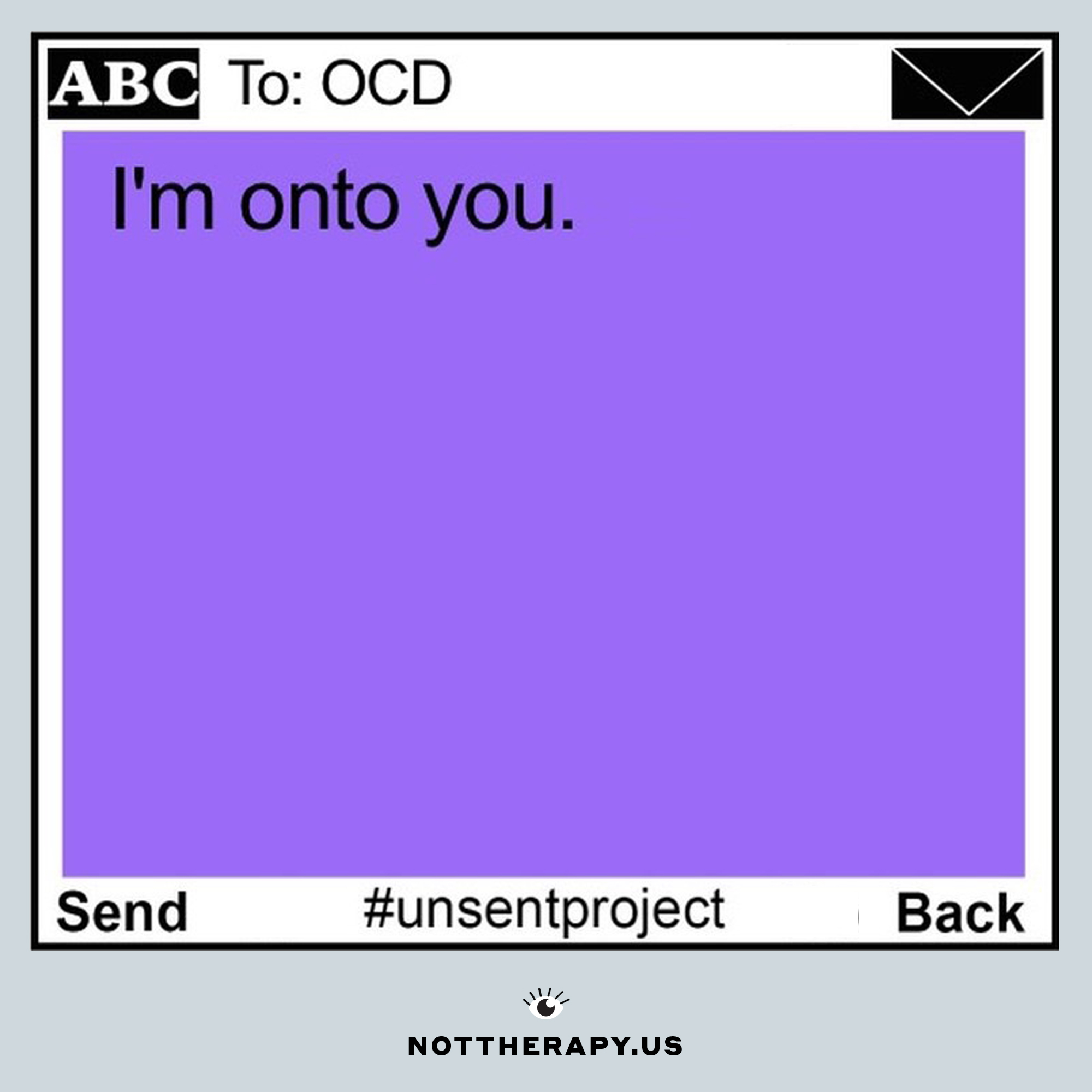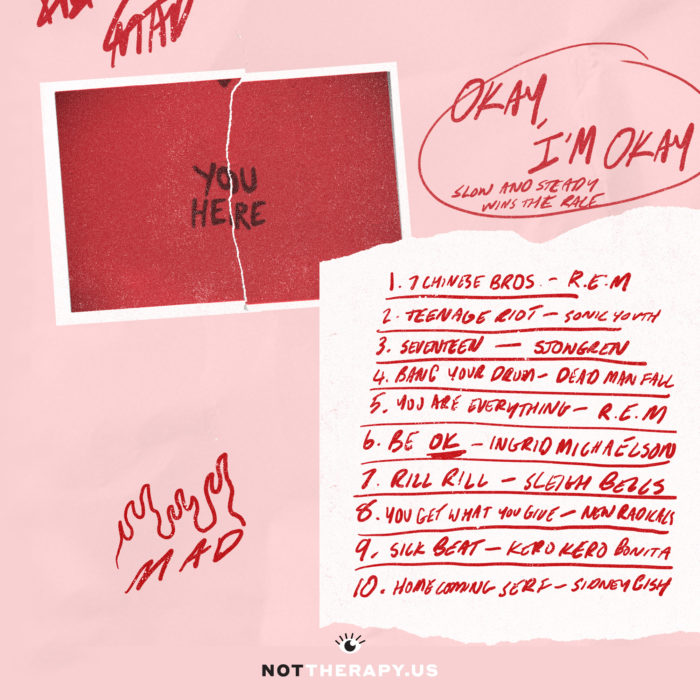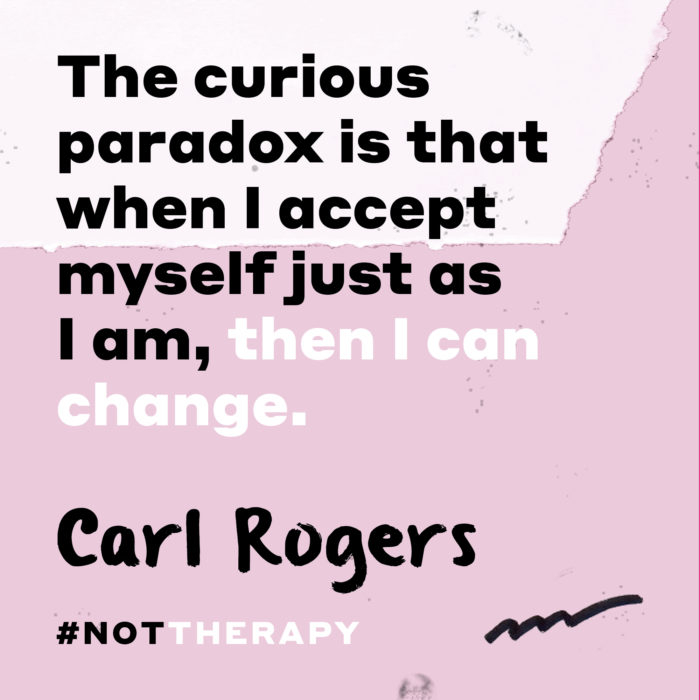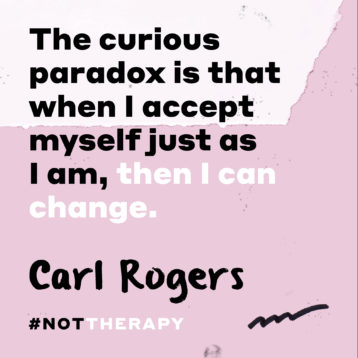Obsessive Compulsive Disorder (OCD). Tell me about an inner bitch.
It’s a terrible nuisance. As human beings, we have up to 70,000 thoughts a day.
For those of us who struggle with obsessive thinking, intrusive thoughts, rumination, and all of the other distracting and disconcerting things that come along with an OCD diagnosis, the thoughts can get quite overwhelming.
While OCD has become a term used frequently in pop culture, the quirky neat-freak who everyone thinks of actually has very little in common with those of us who fight for a moment of peace with the real OCD.
We all experience obsessive thinking or compulsive behaviors from time to time but to meet criteria for the diagnosis, your thinking must trigger extreme anxiety and make it hard to do the things you want to do every day.
OCD sucks, but it’s not uncommon, so let’s unpack it here.
#TheFacts
It’s estimated that an approximate two to three million Americans over the age of 18 struggle with OCD.
Children aren’t included in this number, but they experience it, too.
The average age of onset is 19, but in a medium-sized high school in the United States, approximately 20 kids struggle—hard.
The World Health Organization ranked OCD as one of the top 20 causes of illness-related disability for people between the ages of 15 and 44. OCD comes in many forms and like all other mental health concerns, it lies on a continuum from totally debilitating to distracting as hell.
It’s important to identify your OCD type—regardless of degree—so that you can get into the right solution and experience freedom.
#InOtherWords
OCD occurs when people get caught up in a vicious cycle of unwanted, intrusive thoughts that trigger serious discomfort and anxiety.
Those of us who struggle often compulsively engage in behaviors in an attempt to decrease the distress.
Are you wondering if OCD has been your problem all along? Tell me this, do you freak out over any of the common obsessions below:
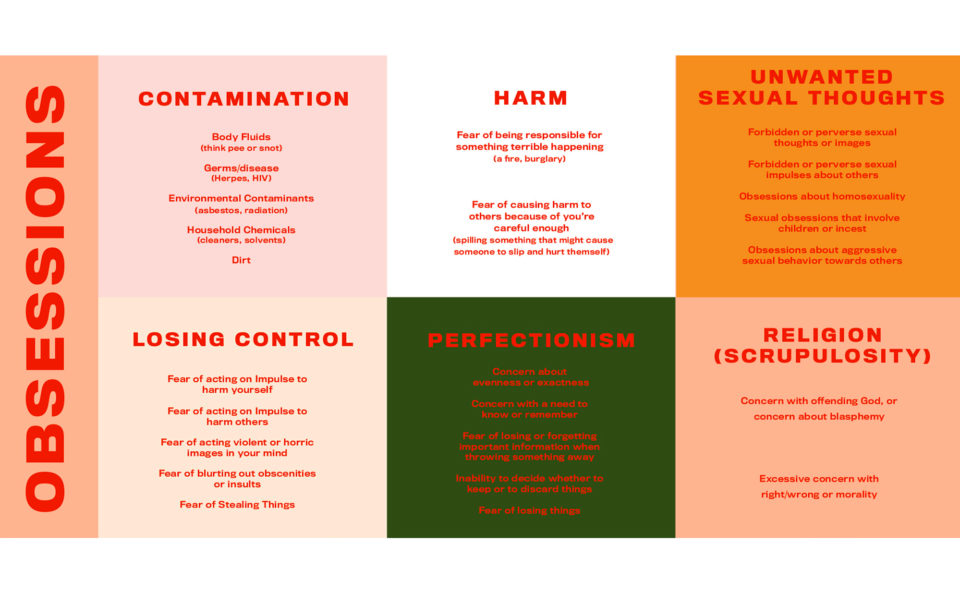
Do you ever experience any of these common compulsions:
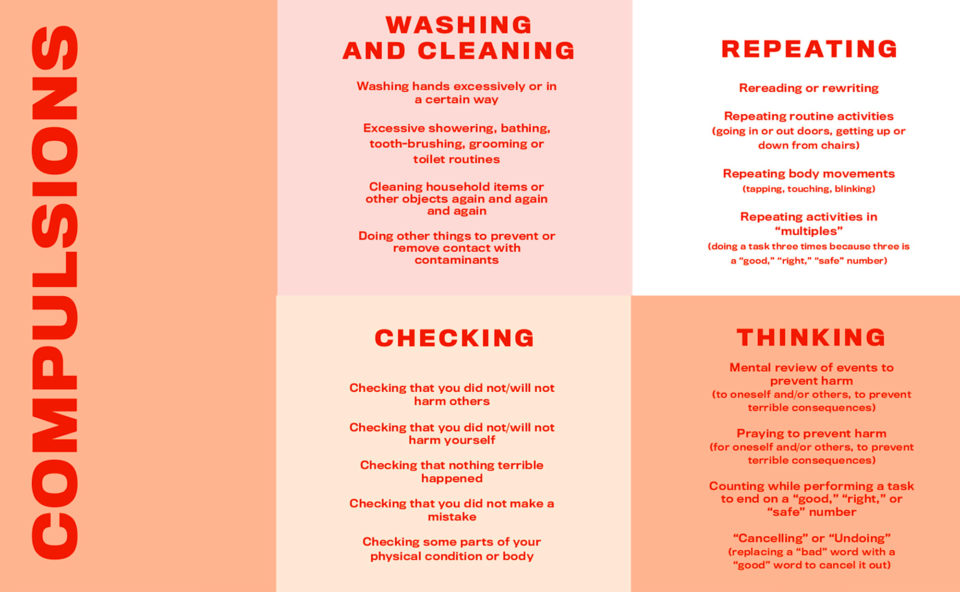
#TheFeels
OCD can be extremely embarrassing. Not only do you know, on some level, that your brain is playing tricks (although you’re never quite sure…), the content of the thoughts can seem demoralizing and most of us worry that the obsessions are windows into our dark, wacky-ass subconscious.
They are not. I know firsthand.
#LetsGetPersonal
When I was in graduate school, I lived approximately 10 miles away from my school. Grad school was a super-stressful time in my life. I was ridiculously perfectionistic, trying to be all things to all people, and had tremendous difficulty with setting boundaries. I never said “NO,” so I was overwhelmed much of the time.
Part of my daily routine was to run home to take my dog outside in between classes.
I worried that if I drove away from my garage before the door was completely down, after letting my dog out, the wind might blow swiftly and trigger the garage sensor without my knowledge. In that case, the garage door would open, my dog would get out, run into the road, get hit by a car and die. I would be heartbroken. My boyfriend would never forgive me and, in turn, breakup with me. I would be alone for the rest of my life.
So, to manage my anxiety, I HAD to make damn sure that the garage door closed and stayed closed before driving away. Doesn’t seem like a big deal, right? Wrong. Especially on exam or presentation days (high-stress days), my brain would play serious tricks on me. I would watch to make sure the garage was closed, drive 10 miles to school, second-guess myself, convince myself that there was a possibility that the garage went back up after I drove away, drive back 10 miles, look at the closed garage, drive back to school, repeat, repeat, repeat. No joke. Many times, I’d be late to class or not make it at all. I HAD to do something.
My solution at the time was to leave myself a voicemail that I could listen to when my brain started playing tricks. I would watch the door close, sit for a second to make damn sure, call my voicemail and say, “THE GARAGE DOOR IS CLOSED.” After arriving in the school parking lot, my brain would inevitably play tricks. Instead of driving back to check, I’d listen to my message for reassurance and walk into class on time, feeling somewhat anxious but okay enough to move forward walk through the fear. After a couple of weeks, that fear subsided. I actually forgot about the whole garage door thing until a couple of years ago when my dad passed away.
On my first Monday back to work after the wake and funeral, my mom called me and asked if there was anything she could do to make my day a bit easier. Without thinking or remembering my grad school days, I said, “Yep. After you go to the gym, just drive by my house and make sure I closed the garage door.” She agreed to do so. I went on with my day. Within a couple of hours, my mom texted me, “THE GARAGE DOOR IS CLOSED.” I read the text aloud. Hearing my voice say those words immediately reminded me of the voicemail I had left for myself 15 years earlier. OMG. When feeling stressed, my brain seemingly chooses to focus on the f@ckin’ garage door. Kinda weird, but it makes sense. I couldn’t control unmanageability in grad school or family members dying, but I can try my damnedest to control the garage door. So, that’s just what I did!
The good news is that like most other things, OCD is treatable. Getting in to see a clinician in your area is always a great idea. And in the meantime, jump over to this week’s #DoThisThing and explore a few coping skills you can put into practice today.
Photo by Janine Kuehn, charts by Shyanne Trutwein with information adapted from The International OCD Foundation Website.



